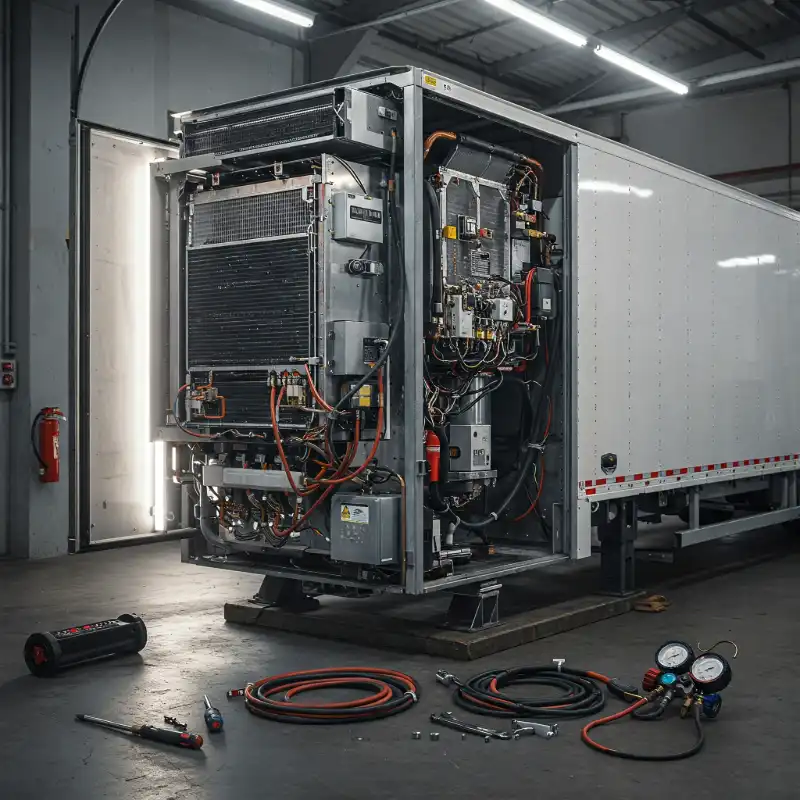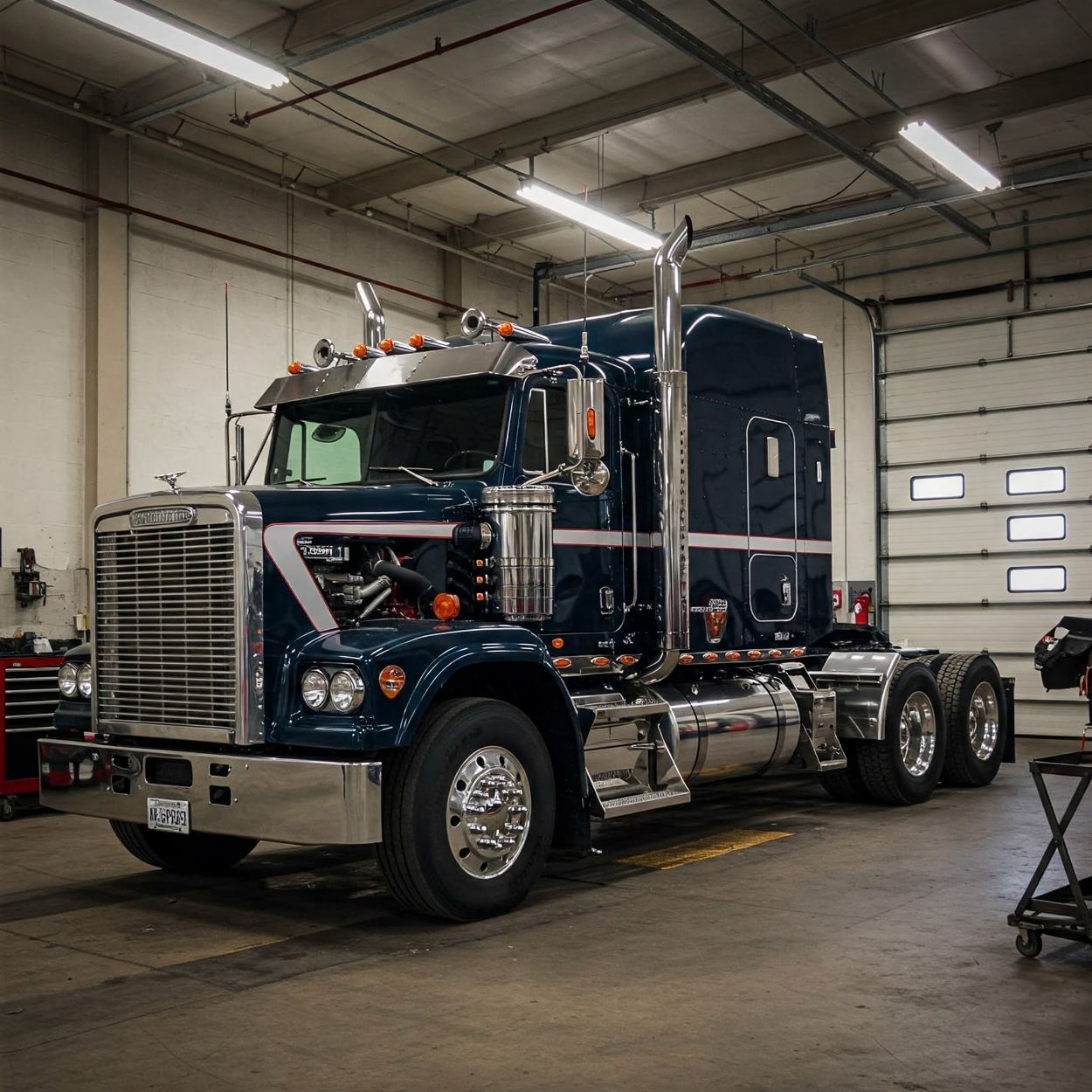
Business management and success heavily rely on profitability. The more profitable a business is, the more money it makes - and this has a direct relation to its overall success. When working with heavy-duty trucks, it’s important to have a thorough understanding of the expenses involved in operating the business. In this post, we will take a closer look at how you can effectively manage your heavy-duty truck fleet costs. We’ll also explore strategies that can help to improve your business’s profitability.
Routine Checkups And Proper Maintenance
The heavy-duty truck fleet market is growing at a 7.4% CAGR, which means more trucks are entering the infrastructure, and drivers need to move cargo effectively - sometimes over long distances. The longer a heavy-duty truck is on the road, the greater the chances of technical problems - especially without regular maintenance and servicing.
Routine checkups are a great way to better manage the costs involved with maintaining the heavy-duty trucks that form part of your business. It’s generally a good idea to have your truck serviced at least once every 12-month period. With this said, the ideal frequency for servicing may be shorter for trucks that are on the road. In this case, you should consider a service every 30,000 miles that the truck drives.
Having a checkup conducted on the truck about two times a year can also ensure heavy-duty truck mechanics are able to identify any potential problems that are still at an early stage. While these problems might not be causing issues with the truck’s functionality at the moment, they can become worse and lead to more significant expenses later on. Fixing these problems earlier also means you’ll end up saving money in the long run.
Use Fuel-Efficient Heavy Duty Trucks
Another way to better optimize the cost of managing your heavy-duty truck fleet is to turn to more fuel-efficient models. Technology is rapidly improving and heavy-duty truck manufacturers are finding ways to make these vehicles more fuel efficient. A fuel-efficient model uses less fuel when driving, which can significantly reduce the cost of keeping these trucks on the road.
The trucking industry had new regulations passed in 2014, which demanded that trucks, including heavy-duty trucks, manufactured after this period should, have better fuel economy. The fuel economy is advised to be at least 7.2 miles per gallon of fuel. With these regulations, heavy-duty trucking companies are continuously putting in the effort to reduce fuel usage - and that is something that can benefit your business.
Follow All Road Safety Regulations
The safety of truck drivers needs to be a priority for businesses that employ them. When it comes to managing the safety of drivers, it’s crucial to follow all of the appropriate road safety regulations and rules.
The driver should have the appropriate license to operate heavy-duty trucks. They should also be properly educated on how they can follow road safety rules from their side. Additionally, regularly check the tires, engine, oil levels, and other essentials on each truck. By following road safety regulations, it’s possible to significantly reduce the risk of accidents - which can be costly to your business and endanger the life of the truck driver, as well as others who are involved. Additionally, it’s possible that the insurance fees you have to pay will be reduced when you follow the appropriate regulations.
Once you have implemented these regulations and taken the appropriate steps, contact your insurance agency. Tell them about the steps you have taken and see if you are able to negotiate a better premium with them. This is a great way to further reduce the costs involved in running your business.
Perform A Cost Analysis Regularly
It’s important to regularly check up on your business - and this includes running a cost analysis frequently. A cost analysis should focus on all of the costs associated with managing your fleet of heavy-duty trucks.
During this cost analysis, it’s important that you look at different elements associated with your business. Look at the cost of fuel over a specified period of time and how much maintenance on the trucks cost. It’s also important to take into account any faults that have developed with your heavy-duty trucks and the costs associated with these.
The cost analysis will give you a clearer view of where your money is going. You can then use this data and compare it to the income you gain - this allows you to get a better idea about the profitability of your business.
At this point, the data you have will be useful when it comes to optimizing your business and the management of your heavy-duty truck fleet. You can use this information to determine what decisions you need to make in order to improve the overall efficacy of your business for the future. For example, when you see the cost of fuel is too high, you could consider strategies that may help to lower costs. This may include the use of more fuel-efficient heavy-duty trucks, or perhaps to rework the routes that drivers are taking in order to avoid wasting fuel.
While it’s important to consider the cost of heavy truck fleet management, do not overlook the expenses involved with salaries paid and the cost of running an office too. These are also factors to be taken into consideration when trying to increase the profitability of your business.
Conclusion
At Integrity Fleet Services, we have more than two decades of experience working with heavy-duty trucks. Our experts can help to provide regular maintenance on your heavy-duty truck fleet, as well as get your trucks back on the road quickly when faced with a breakdown. With live representatives available 24/7, Integrity Fleet Services are able to provide assistance at any time. If you are in Texas, Oklahoma, Louisiana, or within the surrounding areas, then get in touch with Integrity Fleet Services for your heavy-duty truck repair and maintenance needs.
More Articles


7 Errors in Refrigerated Truck Maintenance and Their Fixes
7 Errors in Refrigerated Truck Maintenance and Their Fixes
Avoid costly breakdowns and cargo loss with proper refrigerated truck maintenance. Learn about the top 7 reefer maintenance mistakes and how to fix them.


What Are the Benefits of Telematics in Managing Food Delivery Fleets?
What Are the Benefits of Telematics in Managing Food Delivery Fleets?
Discover how telematics can optimize your food delivery fleet in Texas. Reduce fuel costs, improve efficiency, enhance safety, and ensure faster deliveries with real-time tracking and smart analytics.


How to Reduce Fuel Costs in Your Grocery Delivery Fleet
How to Reduce Fuel Costs in Your Grocery Delivery Fleet
Discover effective ways to cut fuel costs in your grocery delivery fleet with tips on maintenance, route optimization, and technology in Texas.
